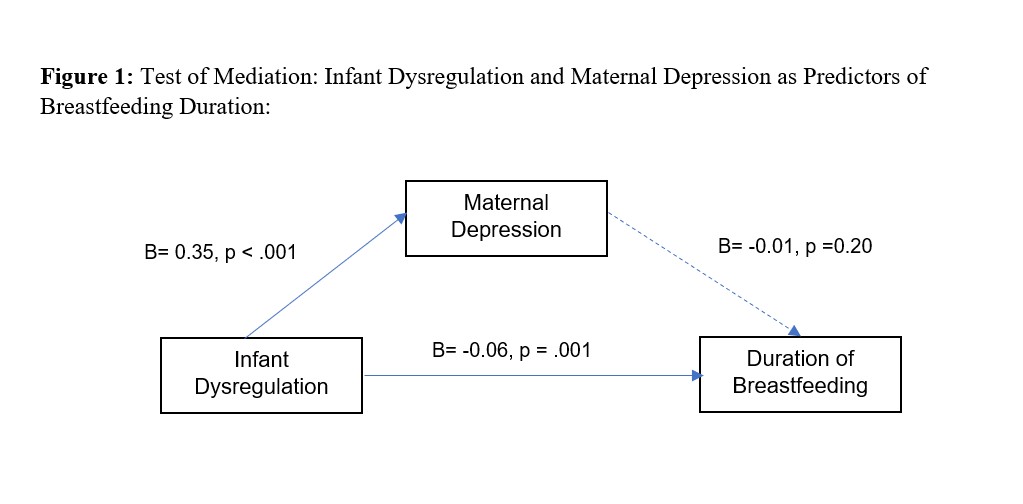Breastfeeding/Human Milk
Breastfeeding/Human Milk 4: Breastfeeding and Milk Provision
32 - Maternal Prenatal Risk Factors, Infant dysregulation and Maternal Depressive symptoms : Associations with Early Breastfeeding Cessation
Publication Number: 32.202

Julie M. Zaituna, DO, MPH (she/her/hers)
Fellow
University of Michigan Medical School
ANN ARBOR, Michigan, United States
Presenting Author(s)
Background: Breastfeeding confers benefits for both mother and infant. However, many mothers experience early cessation of breastfeeding. Pediatricians are well poised to screen for maternal, infant and equity factors associated with shortened breastfeeding duration that can be addressed at well child visits, to help inform interventions. Maternal prenatal/postnatal factors (poverty, maternal depression, smoking), and infant factors (lower gestational age, infant dysregulation) are equity-associated risks, but associations with breast feeding duration are understudied.
Objective: To examine the associations between maternal prenatal factors, infant dysregulation, maternal depressive symptoms, and breastfeeding duration, and to examine whether maternal depression mediates the association between infant dysregulation and breastfeeding duration in a nationally representative, population-based sample.
Design/Methods: Sample included 6850 infants (GA 24-41 weeks) from the Early Childhood Longitudinal Study, Birth Cohort. Outcome was breastfeeding duration (months). Predictors included maternal depressive symptoms assessed with the modified version of the CES-D, a measure of infant dysregulation at 9-months, and maternal prenatal factors (gestational age, plurality, smoking, poverty). Multivariate analysis examined the associations between infant dysregulation, maternal depressive symptoms, maternal factors, and breastfeeding duration, and tested whether maternal depression mediated the association between infant dysregulation and breastfeeding duration.
Results:
In adjusted models, lower duration of breastfeeding was associated with lower gestational age (B= - 0.05, p< .001), twin/multiple gestation (B= - 0.437, p< .001), prenatal smoking (B= - 0.818, p< .001), poverty (B= - 0.42, p< .001) and greater infant dysregulation
(B= - 0.05, p=.006). Breastfeeding duration was not associated with maternal depressive symptoms (B= - 0.007, p=.37). In adjusted mediation models, higher infant dysregulation was associated with greater maternal depressive symptoms (B= 0.35, p< .001) and with lower breastfeeding duration (B= - 0.06, p=.001). Maternal depressive symptoms were not associated with breastfeeding duration (B= -0.01, p=.20), providing a lack of support for mediation (Figure 1).
Conclusion(s): Infant dysregulation, and factors associated with maternal disadvantage were associated with shorter breastfeeding duration. Promotion of breastfeeding should focus on screening for maternal and infant risks, with an emphasis on mothers with a history of psychosocial disadvantage.
